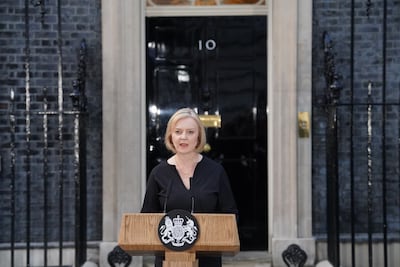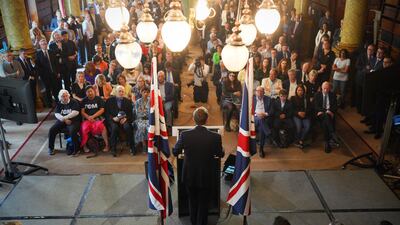Politics is an unforgiving profession, especially in Britain. American presidents who lose an election in November have until the following January to find a new home, a new job and new life away from the White House. British prime ministers who lose must move to a new home immediately. Prime Minister Rishi Sunak was at the apex of political power in July and then, just a few hours after losing the general election, forced out of Downing Street. Yet Mr Sunak’s Conservative party is sometimes called “the world’s most successful political party”.
The Economist newspaper says the Tories have been “in the business of winning elections since the 1830s”. That’s true. In the 20th century the Tories held power for longer than any other party. In the 21st century they have been in power for 14 of the 24 years, although the great British philosopher John Stuart Mill also described the Conservatives as “the stupid party”.
As they choose a new leader now, the question is whether their history of pragmatism and ruthlessness will result in a new Conservative leader who is a vote winner, or whether “the stupid party” will yet again find another dud like Liz Truss and the unfortunate Mr Sunak.
The Tories are seeking to recover from one of the worst defeats in British political history. But the contest to choose a new leader, who will be named on November 2, appears to fire the imaginations of very few British people except the party faithful and a few political journalists. That’s because the new leader – whoever it may be – inherits a disconsolate, divided and defeated party.
It may take a decade before the Conservatives are regarded by voters as again fit for government.
The system for electing a new party leader is unpredictable and is part of the kind of systemic failure at the heart of British democracy that led to six rotating prime ministers since 2010 – Conservatives David Cameron, Theresa May, Boris Johnson, Liz Truss and Rishi Sunak and now Labour’s Keir Starmer.

There are now just 121 Conservative MPs in the House of Commons. Their loyalties to individual candidates are unclear. They have been described by the Conservative party historian Lord Lexden as “the world's most duplicitous electorate” for their supposedly untrustworthy ways of promising a vote to one leadership candidate then voting for another.
The MPs will eliminate some candidates and leave the final choice for leader to 170,000 Conservative party members. But Conservative party members are simply anyone who wants to pay just over £2 a month to join the party. In modern Britain being a political party member is very much a minority sport. In the 1950s the Conservatives had 2.8 million members.
Labour had a million members and millions more were affiliated to the party through trades union membership. Nowadays, those 170,000 Conservative members are less than half of one per cent of the British population. Put in perspective, the National Trust, a conservation charity, has more than five million members. And yet those 170,000 Conservatives – 70 per cent male, generally older, wealthier and skewed towards the south of England – get to decide on the identity of (potentially) our next prime minister.
Ms Truss, the prime minister who temporarily sank the British economy in her seven short weeks in office, was elected in this way with just 81,000 votes from party members. That’s fewer than the number of people who attended one night of Bruce Springsteen’s recent London Wembley show. But it’s just the way the British system “works”, although recently it’s been shown not to work very well at all.
One further problem is that the Conservative party is split between centre-right and much further right-wing elements. The leadership candidates include former ministers Robert Jenrick, Kemi Badenoch, James Cleverly and others, who all seek to minimise their role in the past few disastrous years of a government in which they themselves were ministers.
No one knows who will win, but the British public does not seem to care. To say that the contest does not set the pulse racing would be an understatement. A leader will emerge in the next few weeks, but we should remember that an astonishing 40 per cent of British voters who could have voted in this year's UK general election chose not to do so.
Labour won a parliamentary landslide with just 34 per cent of the vote. That is an alarm bell for the entire British system. If apathy were a political party, apathy would have formed the British government. Yes, it is significant if Ms Badenoch or Mr Jenrick win, especially if they choose to pull the Conservative party further to the political right, or if the affable James Cleverly steers a more centrist course.
But the truth is, if 40 per cent of British people did not care enough to vote to choose our government, you can be sure that beyond Westminster insiders, the identity of the next Conservative party leader is undeniably important and yet it is equally clearly not a matter of great interest for most British people right now.


